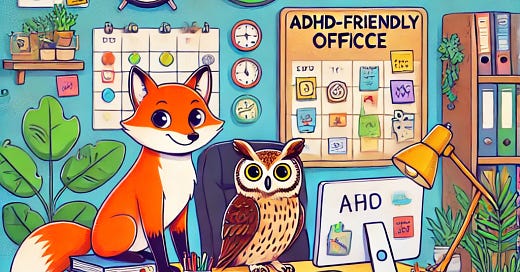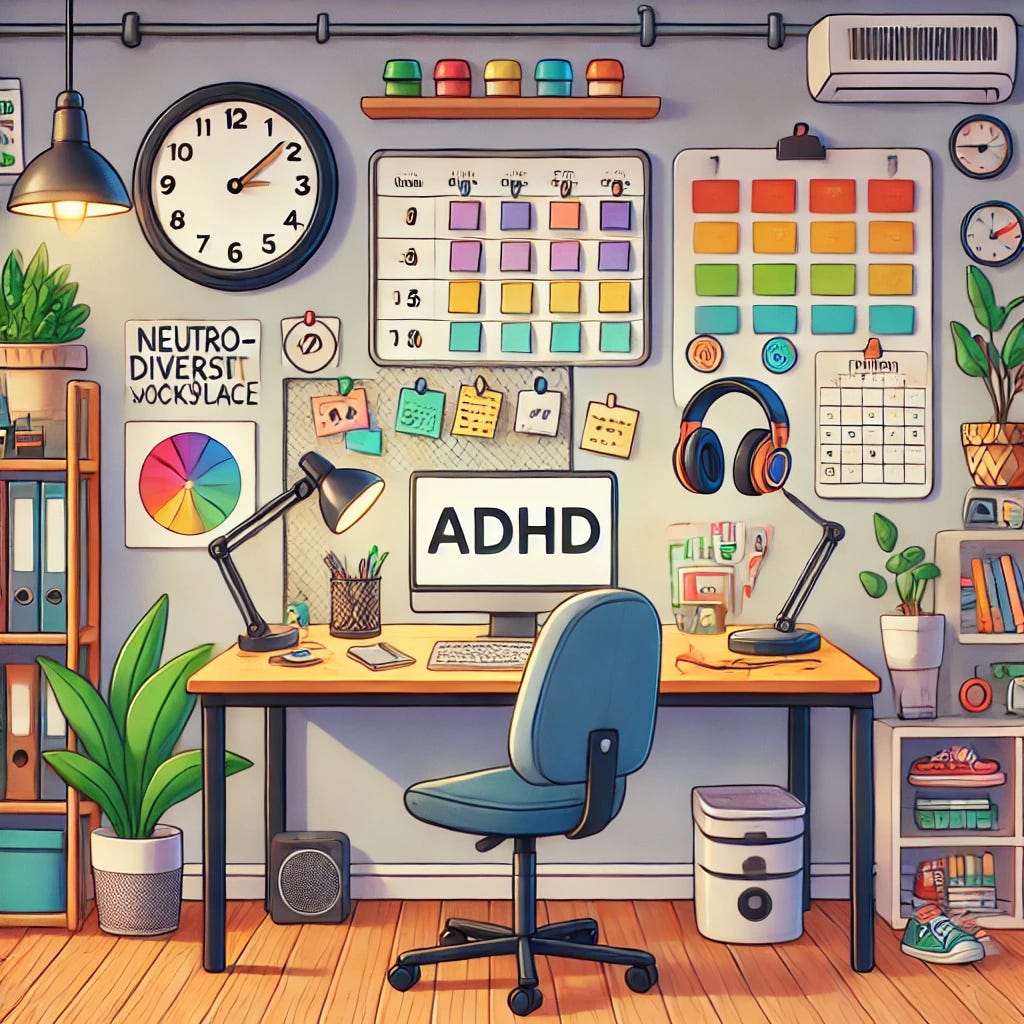Defiance to Direction: Reframing Adult ADHD Resistance at Work
This isn't about fixing what's "wrong" with you – it's about building what works for you.
Ever found yourself in a silent standoff with your inbox? Or perhaps experiencing that familiar surge of defiance when your manager suggests "just breaking down the project into smaller tasks"? Welcome to the complex world of adult ADHD resistance – it's not just kids who struggle with expectations.
The Professional Masking Game
Let's be real: Many of us have become Olympic-level performers at masking our ADHD challenges at work. We've developed elaborate systems, perfected the art of last-minute miracles, and somehow maintained a façade of having it "mostly together." But underneath? There's often a storm brewing.
Understanding Professional Resistance
Recent research suggests that what looks like "defiance" or "lack of motivation" in adults with ADHD is actually a complex interplay of:
Executive function overload
Emotional dysregulation (yes, that's still a thing in adulthood)
Past trauma from years of unmet expectations
Skill gaps that we've cleverly hidden (we’re really good at this)
The Adult Version of "Kids Do Well If They Can"
Ross Greene's principle that "kids do well if they can" applies surprisingly well to adults. Think about it: When was the last time you woke up thinking, "You know what would be great? Completely dropping the ball on that important deadline!"
Identifying Your Professional Pain Points
Instead of beating yourself up about resistance, try this approach:
Map Your Meltdown Triggers
Which work scenarios consistently trigger shutdown?
What expectations feel impossible, even though you "should" be able to handle them?
Skill Gap Analysis (The Adult Version)
Flexibility in changing tasks
Emotional regulation during feedback
Project planning and execution
Communication during overwhelm
Professional Problem-Solving Partnership
Here's where it gets interesting. Instead of forcing yourself to "just do it," try:
Step 1: Information Gathering
Ask yourself:
What makes this task feel impossible?
When does it work better?
What's different about the times it flows?
Step 2: Concern Clarification
Understand the legitimate workplace needs:
Project deadlines
Team collaboration requirements
Professional standards
Step 3: Solution Building
This is where the magic happens. Recent studies in workplace accommodations for ADHD suggest that self-designed solutions have higher success rates.
The Science Behind the Strategy
Recent neuroscience research shows that resistance in ADHD isn't just behavioral – it's neurological. The prefrontal cortex, responsible for emotional regulation and executive function, processes things differently in ADHD brains. Understanding this can help shift from shame to strategy.
Making It Work
Start Small
Choose one professional challenge to tackle first. Maybe it's email management or meeting preparation.
Document Patterns
Notice when resistance is highest and what factors contribute.
Design Personal Solution
Create strategies that work with your brain, not against it.
The Professional Payoff
By addressing resistance proactively rather than reactively, you can:
Reduce workplace stress
Improve professional relationships
Increase productivity
Maintain better emotional regulation
Remember: Your resistance isn't defiance – it's data. Use it to build better systems that work for your unique brain.
Moving Forward
The workplace wasn't designed for ADHD brains, but that doesn't mean we can't redesign our approach to it. By understanding and working with our resistance rather than fighting it, we can create sustainable success strategies.
This isn't about fixing what's "wrong" with you – it's about building what works for you. And sometimes, the most professional thing we can do is acknowledge our needs and create solutions that honor both our neurotype and our career goals.
What workplace situations trigger your resistance? How have you successfully navigated them? Share your experiences in the comments below.




